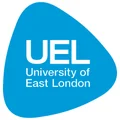

University of East London (UEL)
United Kingdom
| 180 | Undergraduate programs | |
| 96 | Postgraduate programs |
EasyUni Sdn Bhd
Level 17, The Bousteador No.10, Jalan PJU 7/6, Mutiara Damansara 47800 Petaling Jaya, Selangor, Malaysia(43) Google reviews
 +60142521561
+60142521561

Well-known for Computer Science, IT and Engineering courses

Foundation, A-Level, AUSMAT, CIMP and Diploma courses | A Class Above

MBA by Central Bank of Malaysia in collaboration with the Massachusetts Institute of Technology (MIT)

University specializing in producing educators and pedagogists


No Results Found
EasyUni Sdn Bhd
Level 17, The Bousteador No.10, Jalan PJU 7/6, Mutiara Damansara 47800 Petaling Jaya, Selangor, Malaysia(43) Google reviews
Diploma in Accounting & Finance
Diploma in Architecture, Building
Diploma in Business, Management
Diploma in Computer Science, IT
Diploma in Creative Arts & Design
Diploma in Education and Teaching
Diploma in Engineering
Diploma in English Language
Diploma in Health and Medicine
Diploma in Hotel Management & Hospitality
Diploma in Humanities & Social Sciences
Diploma in Law
Diploma in Mass Communication & Media
Diploma in Sports Science
Bachelor in Accounting & Finance
Bachelor in Applied, Pure Sciences
Bachelor in Architecture, Building
Bachelor in Automotive Technology
Bachelor in Business, Management
Bachelor in Computer Science, IT
Bachelor in Creative Arts & Design
Bachelor in Education and Teaching
Bachelor in Engineering
Bachelor in English Language
Bachelor in Health and Medicine
Bachelor in Hotel Management & Hospitality
Bachelor in Humanities & Social Sciences
Bachelor in Law
Bachelor in Mass Communication & Media
Bachelor in Sports Science


United Kingdom
| 180 | Undergraduate programs | |
| 96 | Postgraduate programs |
This website uses cookies to ensure you get the best experience. By using this site, you acknowledge that you have read and understand our Cookie Policy , Privacy Statement and Terms & Conditions .
Current currency: USD - $
Current site: EasyUni Mauritius